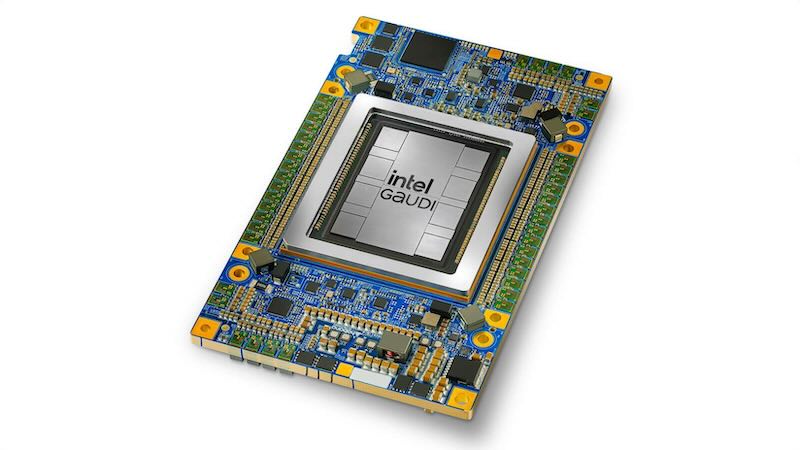A strategic move that could reshape the AI hardware landscape, Intel has announced an expanded partnership with IBM to bring its Gaudi 3 AI accelerators to the cloud. This collaboration marks a significant milestone for Intel, potentially opening new avenues in the competitive AI chip market.
The partnership with IBM represents a crucial win for Intel in the public cloud sector. As the demand for AI computing resources continues to surge, Intel’s ability to secure a major cloud partner demonstrates the company’s growing influence in the AI acceleration space.

Intel has been positioning Gaudi 3 as a cost-effective alternative to competitors’ offerings, emphasizing its price-to-performance ratio. This value proposition could prove attractive to cloud providers and enterprises looking to balance performance with economic efficiency.
Recent market data indicates robust growth in the XPU (accelerated processing unit) sector, with projections suggesting it may outpace the GPU market in coming years. While much of this growth is expected to come from cloud providers’ custom solutions, Intel’s Gaudi 3 could carve out a significant niche.
The potential for Gaudi 3 extends beyond top-tier cloud providers. It may find particular traction among second-tier cloud services and on-premises deployments, where factors like cost, availability, and unique customer value propositions play a crucial role.
While this partnership doesn’t pose an immediate threat to industry leaders like NVIDIA or AMD, it does signal Intel’s growing presence in the AI chip market. With Gaudi 3’s estimated run rate below $1 billion prior to the IBM deal, there’s significant room for growth, especially given the current supply constraints in the AI chip market.
However, Intel faces challenges, particularly in the software and compatibility realm. The lack of integration with Intel’s OneAPI toolkit could limit Gaudi 3’s adoption rate. Nevertheless, the pressing demand for AI acceleration solutions may open doors for Intel, especially in specific use cases.
IBM’s selection of Gaudi 3 is noteworthy given the company’s leadership in the generative AI space. With IBM reporting a doubling of its generative AI business run rate to billions over the past six quarters, this partnership serves as a strong vote of confidence in Intel’s technology.
As the industry awaits performance evaluations of Gaudi 3, all eyes will be on its efficiency and real-world capabilities. Intel’s success in this venture could significantly boost its Data Center and AI (DCAI) business segment.
Moreover, the tech community is eagerly anticipating news about Intel’s upcoming Falcon Shores GPU, slated for 2025. This product could further solidify Intel’s position in the AI acceleration market.
Intel’s partnership with IBM could be a game-changer. Gaudi offerings and expand its presence in the cloud, it’s clear that Intel is not just chipping away at the competition—it’s aiming to carve out a substantial piece of the AI acceleration pie.